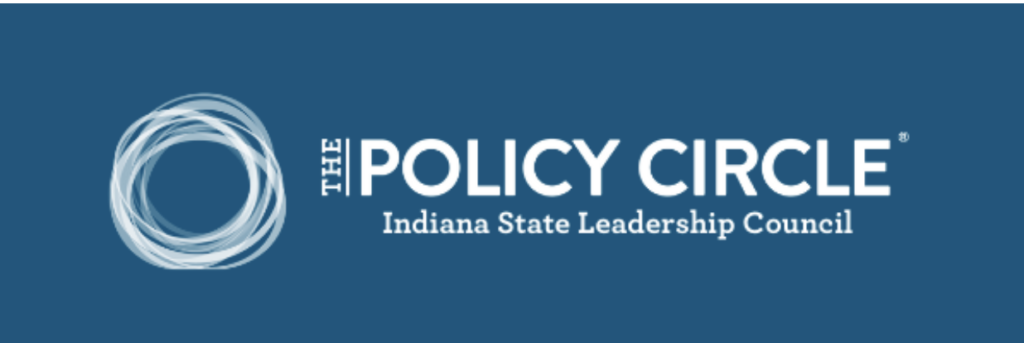A Note from the Indiana State Leadership Council
By The Policy Circle Team

We wanted to check-in with you now that “back-to-school” has arrived and we believe learning isn’t just for kids – but you too. As a member or stakeholder of The Policy Circle, you know the value in lifelong learning and why it’s important to stay educated and engaged in various subjects that impact our daily lives.
There is so much news and information out there to process. However, as you know, The Policy Circle is an organization that takes a deep dive on relevant issues and provides members with resources and engagement opportunities through events and conversations to equip them to have valuable conversations. Recently, the organization launched a Mental Health Policy Brief – a very relevant and timely topic. You can watch the event on the same topic here too.
We wanted to remind you about The Policy Circle’s 5th Annual LeadershipSummit on November 4-5. There will be limited capacity but a virtual option for attendees as well. Click here to learn more and stay tuned for registration options and a potential Indiana Watch Party!
And to prepare, read the Energy & the Environment Policy Brief and join the Indiana Leadership Council for a virtual roundtable conversation about the brief on October 5 at 12:00 p.m. eastern – click here to RSVP! We’ve missed seeing you all and want to have a conversation!
The Indiana Leadership Council has been working to develop another state specific policy brief – this time focusing on Early Childhood Education. Stay tuned for more about the launch of the brief and an event later this fall. See below for a teaser for your curious mind!
We hope we’ve shared something new with you, sparked your curiosity and reminded you about The Policy Circle and the value of being informed and engaged in the conversation. We hope to “see” you on October 5 or for the Leadership Summit in November.
Early Childhood Education in Indiana
Indiana remains one of only six states in the country that lacks a fully-fledged Early Childhood Education program (National Institute for Early Education Research). However, the On My Way Pre-K program, signed into law in 2014, has enabled progress in the state’s ability to provide access to high-quality ECE programming for 4-year-olds from low-income backgrounds. In 2019-20, On My Way Pre-K supported 3,517 children with $6.8 million in state funding, over $350,000 in local county match funds, as well as $14.4 million in federal funding. Significant research demonstrates the near- and long-term positive effects of ECE on children, families, and the broader community. A few of these positive impacts include: increased K-12 readiness and academic performance; greater college attainment and economic mobility. Additionally, greater access to ECE results in students having less need for special services and remediation in school, and results in youth being less likely to commit crimes and thereby reducing state spending on the criminal justice system and restorative resources and supports. According to a report published by governor-appointed Indiana Early Learning Advisory Advisory Committee (ELAC), “implementing a high quality, state-funded ECE program in Indiana will yield an anticipated benefit of $3.83 to $4 per dollar invested” as a result of these and other benefits (The Economic Impact of Investing in Early Childhood Education in Indiana 2016).
The Indiana State Leadership Council’s upcoming Policy Brief digs into the history of ECE, the motivations and barriers to creating change in ECE, and highlights stories of success from across the state. The brief will incorporate insights from Early Learning Indiana’s (ELI) Data Center and ELI’s other work, United Way of Central Indiana’s significant research, organizing, and advocacy, as the collective learning that statewide coalitions of ECE practitioners and families have to offer to provide ideas for how our state can enhance the education and wellbeing of Indiana’s youngest children. The brief will conclude with perspectives from Indiana’s leading ECE thinkers and doers, as well as suggested discussion questions for you and your Circle to further reflect on ECE policy and programming.
As of 2021, there are 260,000 pre-school children (ages 3-5) and 160,000 are anticipated in need of care and roughly 65,000 live at or below the federal poverty line.